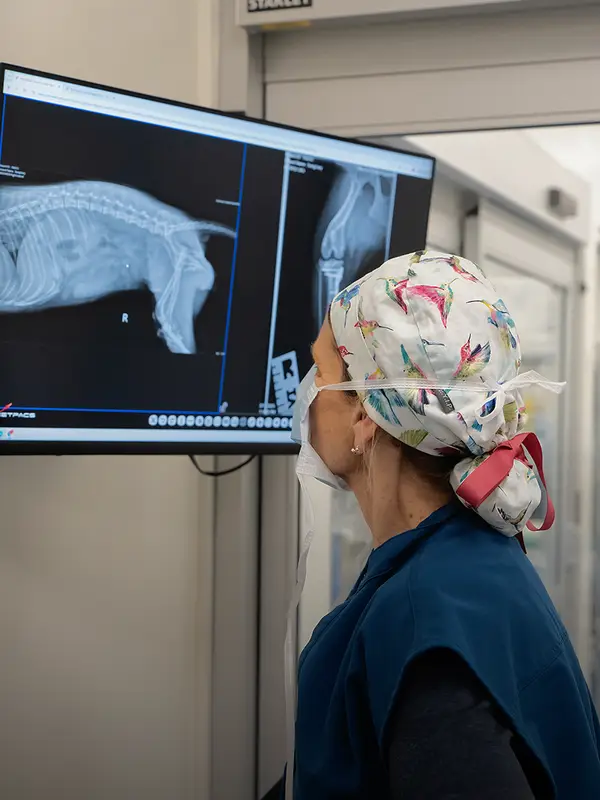
PennHIP Screening
At Veterinary Surgical Specialists
With best-in-class medicine, technology, and an expert team, we’re fully prepared to provide the complete, compassionate care your pet needs.

With best-in-class medicine, technology, and an expert team, we’re fully prepared to provide the complete, compassionate care your pet needs.

We are one of the first specialty hospitals to receive an Accredited Referral Practice designation, which means over 900 quality standards of our practice are consistently evaluated by the American Animal Hospital Association (AAHA).

Canine hip dysplasia (CHD) is still the most common inherited joint problem in large-breed dogs. A PennHIP is a radiographic screening technique to evaluate the laxity (or looseness) in canine hips and determine their risk of developing degenerative joint disease (DJD).
We want you and your pet to have the best experience possible. To schedule a surgical consultation, please contact us.
When your pet needs special care, we have highly-trained specialists to help.
Save time during your visit by filling out our client registration form. (Not required.)
